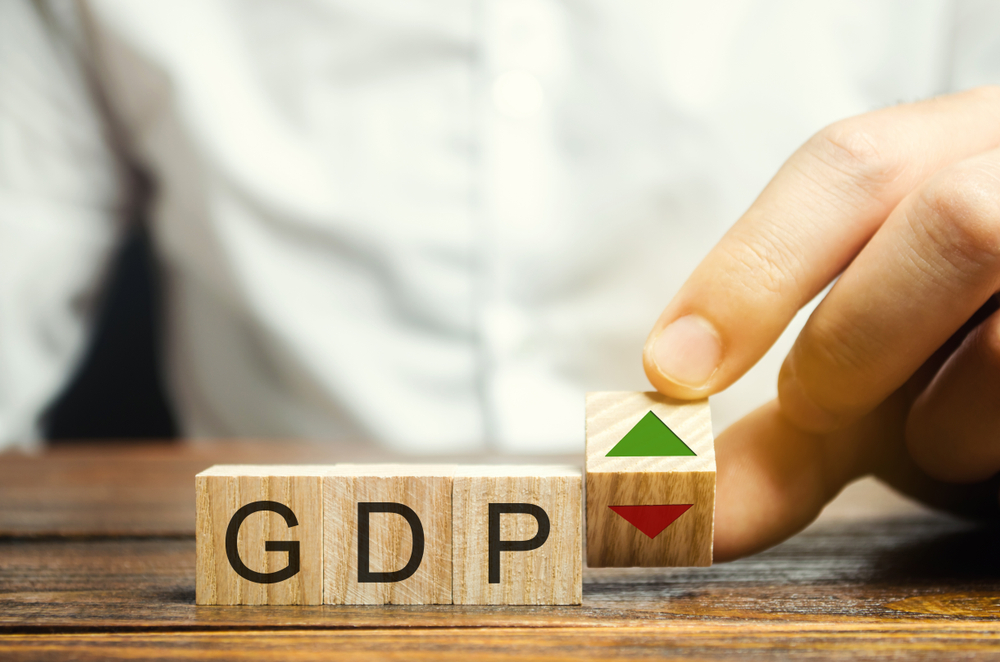Household Bills
UK economy ‘surprisingly resilient’ as GDP grows more than expected in June

The UK economy receives a boost as second-quarter GDP figures from the Office for National Statistics (ONS) prove to be higher than anticipated. However, experts are split on whether the uplift will last and whether the increase will help struggling households.
The UK economy is estimated to have grown by 0.2% in the three months to June, and 0.5% in June compared to a fall of 0.1% in May, in a stronger than anticipated performance.
Gross Domestic Product (GDP) is a measure of the size of a country’s economy over a period of time, factoring in all the goods and services that have been produced.
Construction and production lead the way
The production sector grew by 1.8% in June which followed a decline of 0.6% in May, which was the main contributor to the month-on-month rise in productivity, according to the ONS.
There was also good news for the construction sector, which expanded by 1.6% in June after a fall of 0.3% the previous month.
Businesses also said that growth in May was constrained by the extra bank holiday for the King’s Coronation.
Additionally services output rose by a slender 0.2% in June, an improvement on the zero growth in May for a highly influential sector in the UK economy.
Darren Morgan, the ONS’s director of economic statistics, said: “Manufacturing saw a particularly strong month with both cars and the often-erratic pharmaceutical industry seeing particularly buoyant growth.
He added: “Construction also grew strongly, as did pubs and restaurants, with both aided by the hot weather.”
Resilient or recession bound?
Alice Haine, the personal finance analyst at Bestinvest, the DIY investment platform and coaching service, said: “The UK economy has remained surprisingly resilient so far this year despite the multiple challenges to output posed by interest rate hikes, stubbornly high inflation, widespread industrial action and a deepening cost-of-borrowing crisis.
“While the country may still dodge a recession in 2023, the slight rise in economic activity in June masks the troubles ahead. With interest rates now at their highest level since the 2008 financial crisis and likely to rise again from here, food and energy costs still elevated, inflation only now easing from the persistently high level seen over the past year and the tax burden at the highest level since the Second World War, households and businesses are struggling under the weight of cost pressures.”
Martin Beck, the chief economic advisor to the EY ITEM Club said: “Reassuringly, the economy also grew a bit faster than expected in Q2 as a whole, despite the obstacles presented by the extra public holiday, industrial action in some sectors, rising interest rates and still-high inflation.”
“But growth of 0.2% quarter-on-quarter was modest and left the economy only 0.4% larger than a year earlier and still 0.2% below its pre-pandemic size in Q4 2019.
“So, the story of broad flatlining in activity since mid-2022 didn’t change a great deal.”
Marcus Brookes, chief investment officer at Quilter Investors, was less optimistic: “Earlier this week, the National Institute of Economic and Social Research published forecasts that predicted the UK is facing five years of economic stagnation, and looking around you can see why such pessimistic views are percolating, despite the slightly better than expected GDP numbers this morning.
“UK GDP rose 0.5% in June and grew in the second quarter, with just a 0.2% increase. However, interest rates take a while to feed into the economy, but it is clear that they may be starting to have an effect.
“While there is unlikely to be one this year, the UK can still be put on recession watch for 2024 as it seeks to resolve its more unique set of economic circumstances.”